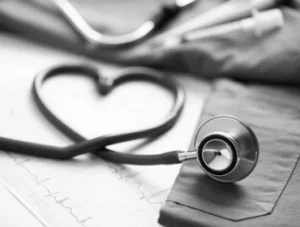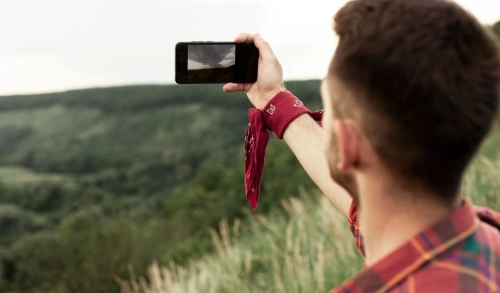
As addictions can run in families, alcoholism treatment many in recovery complain about their addicted or alcoholic family members who refuse to get diagnosed or admit their problems, but who drink like fish at all family gatherings. Everyone deals with holiday stress, but for people in recovery trying to stay sober, the holiday season places unprecedented challenges. After the excitement and anticipation of the holiday season is over, it’s common to feel sad, disappointed, or a bit down.

Managing Families’ Holiday Expectations during Recovery
Yet the holidays, especially during early recovery, can be a time of great joy and celebration even as you struggle with your addiction. The following tips may help you make new holiday traditions as you work to build your new life in the New Year. The holiday season revolves around unrelenting themes of gratitude, abundance, and celebration.
What is Buprenorphine and How it Works for Opioid Addiction?
Thinking about how you will handle the tempting situations you will encounter over the holidays will help you make a plan that will allow you to navigate them successfully. Plans could include having a ride or knowing public transportation schedules if you need to leave an event suddenly, practicing how you will turn down a drink, or deciding what to do if you begin to feel uncomfortable. Have a plan for saying “no” to offers of drugs or alcohol, especially when people ask why you aren’t partaking or are pressuring you. It will also help to speak with your therapist or counselor about what triggers you have and what you should do when things become overwhelming. Additionally, you may want to rearrange your treatment schedule if you are planning to attend holiday gatherings.
Families develop their own dysfunctional coping mechanisms when a family member struggles with addiction. They may:
Some good ideas that you could try are things like restorative yoga or art therapy, but you can test out new hobbies that can also be therapeutic like wood carving, ice skating, cooking, or hiking. If you are in early recovery, you might think that celebrating the holidays is going to look quite different than in recent years. Attending alcohol or drug rehab means you are already aware that relapse is something you must always guard against. Some families might consider the holidays an inappropriate time to help a loved one get into addiction treatment when, in fact, it could be an ideal opportunity.
As you’re preparing for holiday challenges in early recovery, we hope these tips give you the guidance you need to remain sober. Accept that You Cannot Control Them or Their Recovery – Even with the best plans and intentions, people relapse. Even when family members are in your home over the holidays, that doesn’t mean their drug and alcohol use is within your control. If your family member is in active addiction, they will probably continue to use during the holiday regardless of your presence or wishes. Just because it is the holiday season, doesn’t mean it is OK to use substances in any amount. When you stop enabling over the holidays, you could be setting your family up for years of happier and healthier holidays ahead.
Some people struggle with immense sadness during the holidays, often called the “holiday blues.” Putting too much pressure on yourself to create the perfect holiday experience can lead to disappointment and stress. Our Treatment Advisors are available 24 hours a day to help you or a loved one access care. We’re ready to make sure you have the support you need to achieve lifelong recovery. If those thoughts begin to creep in—those rationalizations about your eminent capability to now handle your liquor—shut them down immediately. Your abstinence did not, in fact, teach you how to control your drinking, because abstinence didn’t rewire your brain to be non-addicted. A mistake is not a relapse, and it’s not going to land you in rehab, but those secrets might.
- However, some facilities may offer reduced sessions or reduced time spent at the facility throughout the holiday season.
- Crafting your holiday relapse prevention plan will help you anticipate your every move, so you can stay away from the substances that once caused you irreparable harm.
- Even non-alcoholic beers can have small amounts of alcohol in them, so for those in early recovery a beverage that is not traditionally alcoholic may be a better option.
- Nourish your spirit, too, through personal reflection and connection with those you love.
Living With a Recovering Addict – Dos and Don’ts

Stop Covering Up – Enabling is also when family members try to hide their loved ones’ substance use problems from others. Chances are, other members of the family or close friends are already very aware of the problems, and efforts to cover things up won’t be successful. Addiction is a disease and treating it like a secret or acting embarrassed about it may delay recovery or make things worse. Recovery changes family dynamics as each family member learns about the disease of addiction and their own need for support. For some, it is a season of great joy and time with family and friends, a chance to slow down and enjoy the moment. We also provide a full continuum of care at our state-of-the-art addiction treatment facility, which begins with a medical detox and ends with ongoing aftercare programming.
- Fortunately, these strategies can help you stay focused on recovery and avoid triggering situations.
- Celebrate the holiday season and the fullness of your sober life by taking time for yourself.
- The following will provide some tips for maintaining recovery over the holidays, whether you’re in active treatment or long-term recovery.
- Loved ones in recovery learn that triggers are “people, places or things” that are linked to their patterns of use.
- If you are in early recovery, you might think that celebrating the holidays is going to look quite different than in recent years.
Ready to speak with a Recovery Advisor? Call us any time.
Recovery from addiction is difficult, even more so during this time of year. While family support is vital in recovery, it’s important to understand that the commitment to reframing holidays in early recovery remain on your recovery journey lies within yourself. However, there are several things that family members can do to be supportive.

Triggers can also be completely independent of substance use, such as experiencing relational conflict with a partner. However, one thing that all triggers have in common is that they trigger emotional distress, which can lead to an emotional relapse. The Discovery House is a fully licensed, Joint Commission accredited, comprehensive drug and alcohol treatment center located in Reseda servicing the Los Angeles area. We provide detox and residential addiction treatment to individuals from all across the United States. Remember, your well-being is the greatest gift you can give reframing holidays in early recovery yourself and your loved ones. When people notice your sobriety, they will probably comment on it or ask questions, so it is important to decide what you will say ahead of time.
Family Relationships and Recovery

For many of the reasons mentioned earlier, substance abuse tends to ramp up over the holidays. Addiction treatment initiated during the holidays could be the best gift you give to your family, your friends and yourself. I’ve worked with many people in recovery who tell me that coworkers can look at them as if they have a third eye, or as if they have just sprouted wings, if they decline an alcoholic beverage. Many have trouble just being around alcohol, not to mention the unchecked inebriation that can occur at these parties. Celebrate the holiday season and the fullness of your sober life by taking time for yourself.
